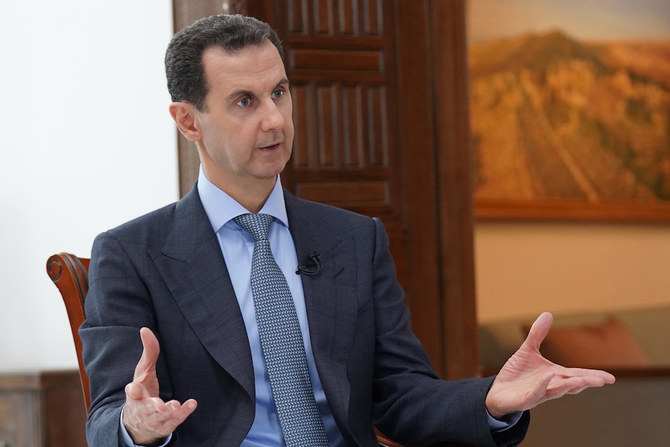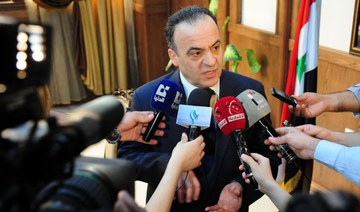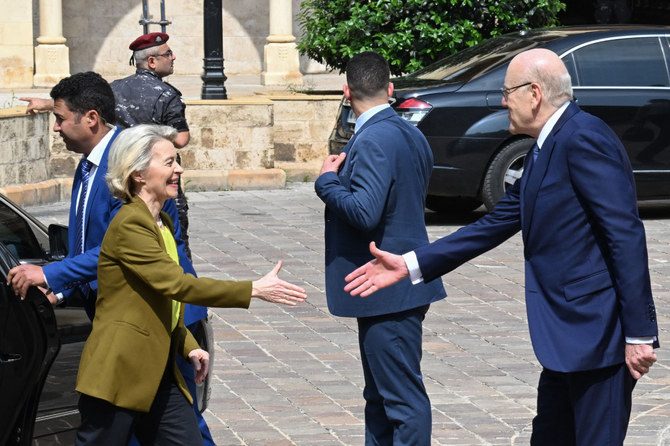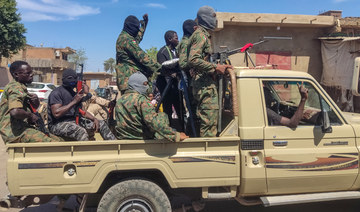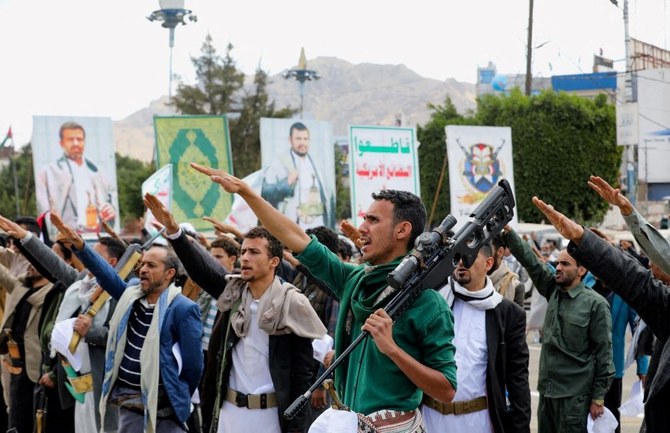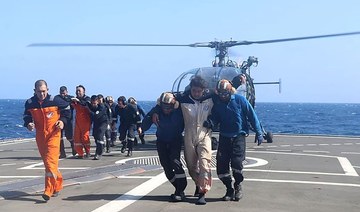NEW YORK CITY: It all began in 2014, when a Syrian military police photographer, codenamed “Caesar,” testified in disguise before the US Congress. He provided the back stories for some of the 55,000 images of torture victims that he had helped to smuggle out of Syria.
The trove of photographs testified to a campaign of human rights violations, torture and murder by the government of President Bashar Assad.
The stage was thus set for the drawing up of the Caesar Syria Civilian Protection Act, which did not pass until late last year as part of a Defense Spending bill.
FASTFACT
Caesar
Caesar Syria Civilian Protection Act is named after “Caesar,” a Syrian military forensic photographer who documented torture by Assad’s regime.
The legislation warns Washington’s friends and foes alike, worldwide institutions, businesses and officials that engagement in any business with the government of Assad could lead to travel bans, denial of access to capital, and arrest.
“Any country or individual, if you’re supporting Assad, stop now! If you’re thinking of supporting Assad in the future, cancel your plans! Because the Caesar bill is an open-ended warning to everyone (who deals with Assad),” said Mouaz Moustafa, the executive director of Syrian Emergency Task Force, dubbed “Caesar’s Godfather.”
He brought Caesar to testify in Congress, and then coordinated efforts to help in the drafting, passing and now implementation of the bill.
#LISTEN: “The #Assad regime understands the reality – it can detain and torture to death, displace or murder by airstrikes or chemical weapon,” says Mouaz Moustafa of @Syrianetf. Will the Caesar Act finally hold the regime to account? https://t.co/ejwF3QylhN pic.twitter.com/YhppoOWjG9
— Arab News (@arabnews) June 16, 2020
The legislation received rare bipartisan support. Top Republicans and Democrats from the congressional foreign affairs committees urged all nations to shun Assad, who “remains a pariah,” and called on the Trump administration to vigorously enforce the new measures.
“The regime and its sponsors must stop the slaughter of innocent people and provide the Syrian people a path toward reconciliation, stability and freedom,” said Representatives Eliot Engel and Mike McCaul and Senators Jim Risch and Bob Menendez.
“(Assad) will never regain standing as a legitimate leader,” added the joint statement.
While Assad appeared to be emerging victorious from the civil war and talk had turned to reconstruction, a spiraling economy is now threatening his grip on power.
“The Assad regime understands what most of the world doesn’t about the reality on the ground (where it) can detain and torture to death, displace or murder by airstrikes or chemical weapons,” said Moustafa.
“The world will just watch and make statements of condemnation. And the only solution that we have seen actually progressing over the last nine years is the military solution: that of the Assad regime and the Russian air force and Iran and Hezbollah and other terrorists.
“The Assad regime is counting that they’ll just kill, displace, and detain until he occupies all of Syria. And he thinks when he does that, he can claim victory, and then the world somehow is going to welcome him back.
“The Caesar Act pulls away that military victory from the Assad regime. It says that no matter what, any place that the Assad regime rules and governs cannot be worked with or dealt with or ever integrated into the international community, because Assad belongs in the International Criminal Court, not in the United Nations.”
Sanctions from the era of President Barack Obama already target the oil sector, and powerful Syrian individuals. The Caesar Act closes loopholes in these sanctions by adding secondary sanctions that target entities operating for the Assad regime’s benefit in four sectors: Oil/natural gas, military aircraft, construction and engineering.
Opinion
This section contains relevant reference points, placed in (Opinion field)
This includes indirect support to the regime, such as support to Iranian- and Russian-backed militias operating in Syria.
“This revision alone in the bill is worth the whole legislation, because (it) ensures that (individuals) who have been sanctioned in the past and have found creative ways, loopholes, to be able to (get around) the sanctions will now see secondary sanctions placed on them, meaning any company or individual that wants to have any relationship with these sanctioned individuals, will also have sanctions applied to them,” said Moustafa.
The bill’s backers want to stymie reconstruction because Assad is offering lucrative investment contracts to countries to re-establish diplomatic relationships with them.
“The regime is hijacking the private sector. They say they want reconstruction but what they really mean is they want to do another round of stealing the resources of Syria,” said Nizar Zakka, a Lebanese citizen who is a member of the Caesar Act team.
Zakka, now global ambassador for peace and director for Program Development Peacetech Lab at the US Institute of Peace, endured torture in Iranian prisons for four years, and was asked to join the team as a voice for the victims of torture.
Moustafa says reconstruction deals also serve another purpose: Demographic change and what amounts to ethnic cleansing that the regime, Iran, Russia and Hezbollah have conducted inside Syria.
“When a regime levels whole towns, destroys infrastructure, targets hospitals and displaces well over 10 million people, and then is asking for investments so people can pay for him to rebuild what he destroyed, land that he’s expropriated from millions of refugees that will never be allowed to return — the Caesar Act puts an end to that,” he said.
Syria’s economy has collapsed after a decade of war. Hyperinflation and a currency nosedive have raised the cost of food and medicine beyond the reach of most citizens and resulted in mass business closures and widespread food shortages.
The economic downslide is made worse by the financial crisis in neighboring Lebanon, where banks have served as a conduit to the world for Syria’s business community.
The Syrian government called the sanctions “economic terrorism,” and said the US will “bear main responsibility for the suffering of the Syrian people.”
Critics of the legislation claim it is being used for US strategy, which aims to crush two of the regime’s main backers, Iran and Hezbollah, and could push Syria and the region to the brink of a dangerous new stage of the conflict.
Moustafa dismisses those accusations as mere conspiracy theories.
“First of all, the United States and the international community (should) be ashamed of themselves for allowing that never-again moment in Syria to go on for so many years with the worst sadistic types of crimes happening.
“The Caesar act is the reaction of Republicans and Democrats in the US Congress. It’s the reaction of regular American people that saw photographs they have (only seen the likes of) in history books about the Holocaust or the Rwandan (genocide.)
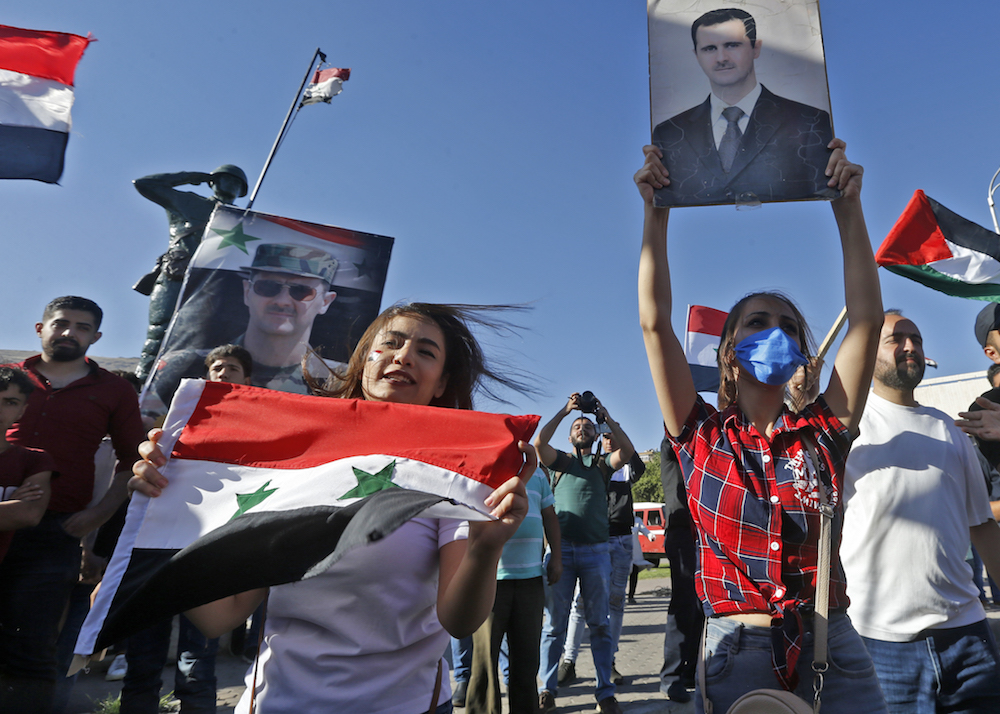
People wave Syrian national flags and pictures of President Bashar Assad during a demonstration in support of Assad and against US sanctions on the country, at the Umayyad Square in the centre of the capital Damascus on June 11, 2020. (AFP)
The bill “is meant to do exactly what the letter of the law says: Protect civilians and punish the criminals.
“It’s the very least the US can do, but it is a very positive step meant to fix the many mistakes of the previous administration and this administration and anyone that hasn’t done enough to help Syria,” Moustafa said.
The Caesar Act establishes criteria that Assad and his allies must meet before sanctions can be lifted.
They include halting the Syrian-Russia air campaign and its targeting of civilians; allowing unfettered humanitarian access to areas under regime, Russian or Iranian control; releasing thousands of political prisoners, facilitating the return of refugees; a genuine political process leading to some form of power sharing; constitutional reform; and ensuring that war criminals are held accountable.
The first group of sanctions will be revealed on Wednesday. More will be gradually unveiled over the summer.
“This is to give those who are dealing or thinking of dealing with Assad the time and option to stop. It is a delicate process. If you immediately put sanctions on people, you are going to lose them to the other side. That is in no one’s interest right now,” said Zakka.
------------------





